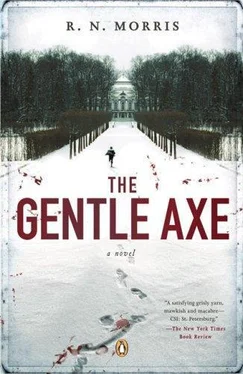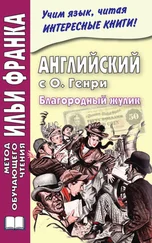R. Morris - The Gentle Axe
Здесь есть возможность читать онлайн «R. Morris - The Gentle Axe» весь текст электронной книги совершенно бесплатно (целиком полную версию без сокращений). В некоторых случаях можно слушать аудио, скачать через торрент в формате fb2 и присутствует краткое содержание. Год выпуска: 2008, ISBN: 2008, Издательство: Penguin Books, Жанр: Исторический детектив, на английском языке. Описание произведения, (предисловие) а так же отзывы посетителей доступны на портале библиотеки ЛибКат.
- Название:The Gentle Axe
- Автор:
- Издательство:Penguin Books
- Жанр:
- Год:2008
- ISBN:9780143113263
- Рейтинг книги:5 / 5. Голосов: 1
-
Избранное:Добавить в избранное
- Отзывы:
-
Ваша оценка:
- 100
- 1
- 2
- 3
- 4
- 5
The Gentle Axe: краткое содержание, описание и аннотация
Предлагаем к чтению аннотацию, описание, краткое содержание или предисловие (зависит от того, что написал сам автор книги «The Gentle Axe»). Если вы не нашли необходимую информацию о книге — напишите в комментариях, мы постараемся отыскать её.
The Gentle Axe — читать онлайн бесплатно полную книгу (весь текст) целиком
Ниже представлен текст книги, разбитый по страницам. Система сохранения места последней прочитанной страницы, позволяет с удобством читать онлайн бесплатно книгу «The Gentle Axe», без необходимости каждый раз заново искать на чём Вы остановились. Поставьте закладку, и сможете в любой момент перейти на страницу, на которой закончили чтение.
Интервал:
Закладка:
As well as those on display, there were deep baskets filled with icons. Zoya stood over one and closed her eyes. She held out one hand and let it hover. Then she dropped it to caress the varnished surfaces, before forcing her fingers down. It was a question of wheedling and teasing, of flexing her fingers to engineer minute shifts in the abutment of edges. She was able to plunge her arm all the way up to her elbow before withdrawing it. And then, at last, she opened her eyes and inspected her forearm. It seemed strange to her that no visible change had been wrought upon it; that it was not glowing or dripping with gold.
The young icon dealer tolerated all this without comment, too polite even to give any indication of noticing. Zoya, however, chose to see something other than politeness in his gently averted eyes. In them she saw infinite compassion.
Looking back to the icons that were hung up around his stall, her eye was drawn to one she hadn’t seen before, a heavily jeweled representation of the Savior. His halo was formed from circles of pearls, alternating with settings of sapphires and lapis lazuli, all on a base of beaten silver. Seeing it for the first time, she felt the breath leave her body in amazement. It was not simply the beauty and richness of the jewels and precious metal that impressed her. She understood that this was meant to represent Christ’s splendor. Her soul grasped too the inadequacy of any earthly treasures to convey it. The Savior’s face remained unmoved by the riches surrounding him. And it was the face she stared at, the face that humbled her.
Finally she addressed a remark to the dealer: “Haven’t seen this one before.”
His eyes flashed toward where she was pointing. “It came in today.”
“Is it old?”
“Seventeenth century.”
Zoya’s eyes narrowed further. She seemed to find this information discouraging. “It’s not the oldest I’ve seen. Was it in a church?”
The young man nodded.
“How much is it?”
“It’s very precious. The jewels alone are extremely valuable.”
“How much?”
“One hundred rubles.”
Zoya clicked her tongue. “I don’t care about the jewels.”
The icon dealer shrugged, as if to say, Don’t buy it then.
“It’s not the jewels I want,” insisted Zoya. “If I wanted jewels, I would go to Fabergé.”
“I know what you want from them.” His eyes confirmed his understanding. “I have one here that also came in today. I put it aside for you.” He bent out of sight and returned holding a tiny, dark rectangle of wood, on which was painted an image of the eternal Mother of God holding the Infant Christ. He held it out for her to examine. She took it and felt its power in the quickening of her heart.
The gold paint of the background was peeling off. The age of the varnish flattened the details of the clothing. But the intensity and directness of the Virgin’s gaze was undimmed. Zoya felt the tears trickle down her face. She thought of all the men who had squirted their seed into her, the seed of life, of all the unborn, unbaptized babies she had carried, but not to full term. She realized that she could have no secrets from those eyes. The Virgin’s gaze knew everything, understood everything, and forgave everything. It promised intercession and redemption. It promised hope. Those eyes looked into her soul without flinching.
“This one is twelfth century. It’s over six hundred years old. Imagine.”
She nodded as she dabbed the tears away.
“Imagine how many people have thrown themselves down before it. Imagine how many prayers have been said to it. Six hundred years. Imagine how many miracles it has performed.”
“I’ll take it,” said Zoya. She did not ask the price. “I’ll take them both.” And all the gilded saints and angels and all the varnished prophets flickered their blessings on her purchase.
A group of children was playing in the snow in front of the apartment building on Srednyaya Meshchanskaya Street. One of them, a little girl of about three or four, wearing a drap-de-dames shawl, caught Porfiry’s notice. Somehow he knew that she was Lilya’s child. She was less ragged than her playmates, dressed in smart new clothes and boots, which seemed to confirm Fräulein Keller’s story about Lilya’s rich provider. He could see something of Lilya in her wide blue eyes and the shape of her head. Her lips reminded him of Lilya too. It was only the nose that made him doubt, rather stronger than the insignificant nub typical of children her age. It had a distinct double tip, which was reddened by the cold. Like the rest of her face, it seemed familiar to him, and so perhaps it was more like Lilya’s than he remembered.
As he watched the children play, he thought of the price he had paid for this lead. He felt as though he was defiling them by his gaze.
As much to cut short these reflections as to advance the investigation, Porfiry called out, “Hey! You lot!” The children turned, their faces startled but not afraid. “Who can take me to Zoya Nikolaevna’s flat? A shiny five-kopek piece for the one who can!”
They ran up to him, arms outstretched, calling for the money. But Porfiry kept his gaze on the little girl he had noticed earlier. Her eyes had widened even further and her mouth gaped in wonder.
“Do you know Zoya, little one?”
“She’s my granny!”
“And what’s your name?”
“Vera.”
“Hello, Vera. Would you take me to Granny Zoya’s?” Porfiry bent down and held the five-kopek piece in front of her amazed eyes. He fended off the protests from the older children with an upheld palm.
“She’s gone out,” said Vera simply. Porfiry winced at her trusting innocence.
“So there’s no one at home?”
“Mamma’s at home!” This was said with that good-humored indulgence that children reserve for the stupidity of adults.
Porfiry nodded thoughtfully and gave her the coin. The other children began to drift away. “Mamma? I see. Is your mamma’s name Lilya, child?”
The little girl nodded energetically.
“Let’s go and see her, shall we?” The child became grave, affected by the responsibility of her commission. But she saw nothing strange in it. He felt the tug of childhood in her hand.
The door opened narrowly. The mother’s blue eyes peered out, uncomprehending and mistrustful. Her face shocked him, somehow. And then he realized. She was not wearing her streetwalker’s makeup. Her pale exposed skin confronted him with her undeniable humanity. The makeup, he saw, protected both of them.
“Lilya? Do you remember me?”
Of course she remembered him: her eyes showed recognition clearly enough. But she did not understand his presence there. And when she saw her daughter holding his hand, her expression of general anxiety changed to one of fear.
“Vera? What have you done?”
“It’s all right.” He tried to reassure her with his smile. “I just want to talk to you. It would be better if I came in.”
Obedience was clearly a habit with her, yet she resisted widening the gap of the door. Her eyes begged for release, for him to let her be. She had the conflicted look of one who has something to hide but longs to confess it. Her face was momentarily panic-stricken as she glanced at her daughter; then finally, as he knew she would, she began to open the door.
Little Vera ran around his legs to get inside. Porfiry caught the complex of apology and indulgence in her mother’s loving eye.
As Porfiry stepped inside, ushanka in hand, he gasped audibly. Candles burned everywhere, hundreds of them, of every size and type, some in gold candelabra and elaborate jeweled stands, others simply placed in bottles or on saucers. And then he saw the walls, and a second, more self-conscious gasp escaped him. A multitude of holy faces looked out, though their gaze eluded contact. The oil-fueled flames that flickered in front of these faces both illuminated and excluded, creating a glowing screen that seemed to float in front of the dense glittering of icons. They were the blessed ones in paradise; those in the room, the unredeemed on earth. Every square inch of the walls was covered. The icons butted up to one another, frame against frame. The air was thick with burning beeswax, oil, and incense.
Читать дальшеИнтервал:
Закладка:
Похожие книги на «The Gentle Axe»
Представляем Вашему вниманию похожие книги на «The Gentle Axe» списком для выбора. Мы отобрали схожую по названию и смыслу литературу в надежде предоставить читателям больше вариантов отыскать новые, интересные, ещё непрочитанные произведения.
Обсуждение, отзывы о книге «The Gentle Axe» и просто собственные мнения читателей. Оставьте ваши комментарии, напишите, что Вы думаете о произведении, его смысле или главных героях. Укажите что конкретно понравилось, а что нет, и почему Вы так считаете.












